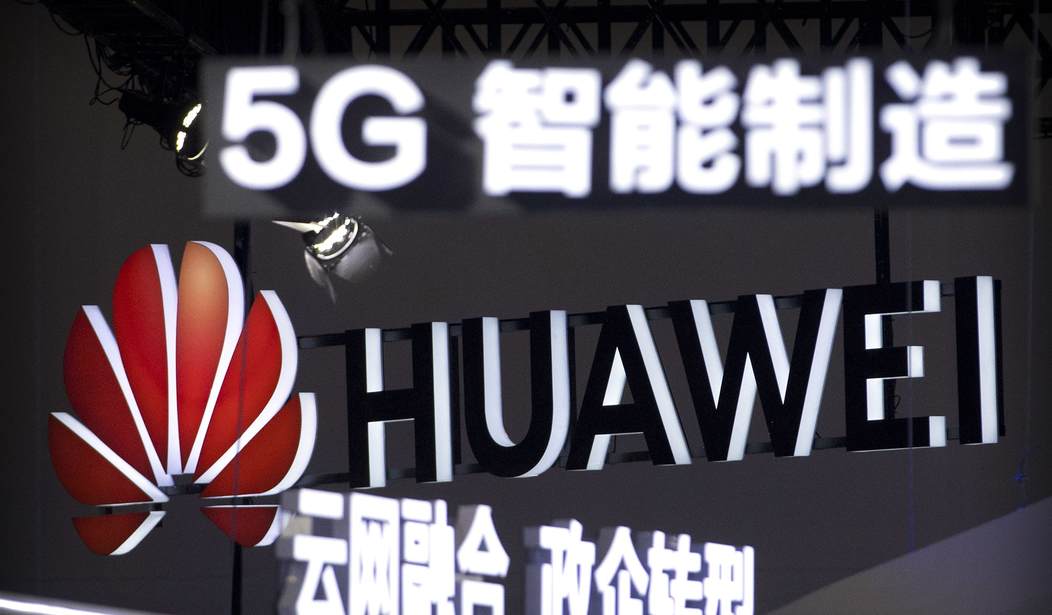Long-term strategic struggles, like the U.S.-versus-China confrontation, do not submit to bombshell headlines and snapshot predictions. When very large and powerful political, economic and cultural organizations conflict, years judge the slow war process of achieving strategic gain or suffering damaging loss, not talking heads on 24/7 news outlets.
Some 30 years ago, the Chinese Communist Party and its intelligence agencies bet digital-information delivery dominance would be a decisive advantage in a long-term struggle for global dominance. I emphasize delivery, for dominating the material and physical (equipment and infrastructure) means for delivering digital information gives the dominator an edge in providing, denying or subverting content -- be it news, opinion or entertainment. Control the system, or be able to easily penetrate, manipulate or corrupt it, and you can secretly collect data on users, spy on users and, if you happen to be a CCP totalitarian, engage in intimate, personal blackmail in order to advance other political and economic schemes.
Denying the CCP global-information delivery dominance and its advantages is the strategic goal driving America's bid to ban equipment made by China's giant Huawei Technologies corporation, with its 5G communication systems a critical target.
Huawei also operates as an intelligence agency "cutout company," spying for the CCP. In August, Secretary of State Mike Pompeo called the company "an arm of the CCP's surveillance state." He also sketched the strategic struggle when he announced new economic and diplomatic measures to protect Americans' security and privacy "and the integrity of our 5G infrastructure from Beijing's malign influence."
America's hard pushback began three years ago. Unfortunately, it is seven to 10 years late, for Huawei is entrenched in digital networks around the globe.
Recommended
5G "next generation" wireless communication systems are an information battlespace. 5G has the ability to connect cellphones, the internet, the internet of things -- all digital devices, which could include controls on a hydroelectric dam.
Three corporations in democracies field superior 5G tech. Finland's Nokia, Sweden's Ericsson and South Korea's Samsung are Nos. 1, 2 and 3 globally in holding standard and essential telecommunications patents.
Huawei, however, has assets its intellectual superiors lack: the CCP's money, political clout, and the covert might of the tyranny's spies and police. Sources estimate Huawei has received $75 billion to $80 billion from Beijing. The cash juiced Huawei's sales by guaranteeing financing and subsidizing interest rates. "Preferential financing" meant Huawei could offer a poor nation a communications system too cheap to refuse.
Should a nation or company balk, CCP spies and diplomats will identify corporate personnel and government bureaucrats who can be gulled or bribed -- or blackmailed. Beijing also influences non-Chinese corporations using investments channeled via companies with opaque ownership.
Nokia, Ericsson and Samsung are superior providers, but they cannot compete with a nation-state combining trade, business, financial, diplomatic, media and spy powers to support Huawei's operations.
This February, U.S. Attorney General Bill Barr suggested America form a consortium with private U.S. and allied companies to manufacture 5G equipment. He recommended teaming with Nokia and Ericsson.
That must happen. The U.S. attack on Huawei is really a response to the CCP, which uses Huawei as a weapon in its strategic struggle. The CCP loves money, but its deep goal is global domination, not beating Nokia out of a contract.
America's diplomatic and legal attack on Huawei is advancing. Three Canadian 5G providers -- including Bell Canada -- will not use its equipment. In July, Britain decided to ban and remove Huawei products from its 5G networks. Alas, the ban takes effect in 2021, and operators have until 2027 to remove installed Huawei equipment.
Though German Chancellor Angela Merkel opposes banning Huawei outright, German legislators intend to pass an information technology security law that restricts high-risk vendors. Telefonica Deutschland has decided its new 5G network will use Ericsson because "the Swedish supplier would safeguard the security" of its 5G services.
That is a small step toward defeating the CCP.

























Join the conversation as a VIP Member